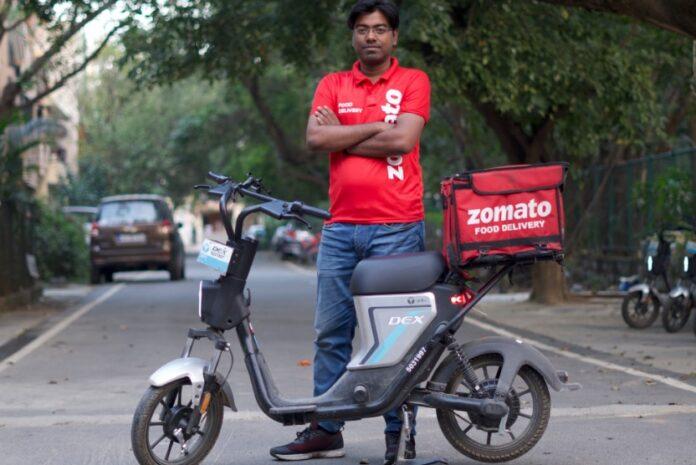As the food delivery market continues to grow, companies like Zomato are looking for innovative ways to improve their delivery operations and gain a competitive edge. One strategy that Zomato is betting on is the use of e-bikes for last mile delivery.
According to Sudhanshu Mani, CEO of Zomato’s delivery partner Hyperconnect Asia, e-bikes can help reduce delivery times and increase delivery capacity, while also being more cost-effective and eco-friendly than motorcycles. This can be a game changer for Zomato, which has been facing increasing competition and cost pressures in the food delivery market.
“The adoption of e-bikes can bring significant benefits for Zomato, from improved efficiency and cost-effectiveness to enhanced sustainability and customer appeal,” said sustainability expert Pratik Sharma. “By using e-bikes, Zomato can reduce its carbon emissions and improve its reputation among environmentally-conscious customers.”
The benefits of e-bikes for last mile delivery are not limited to sustainability, however. A study by the European Cyclists’ Federation found that e-bikes can be up to 18% faster than conventional bikes for deliveries in urban areas, thanks to their electric assistance. This can help Zomato’s delivery partners cover more ground in less time, which can be particularly useful for delivering orders over longer distances.
By leveraging this technology, Zomato can improve its delivery efficiency, reduce its carbon footprint, and increase its profitability. This can help Zomato gain a competitive edge in the crowded food delivery market and appeal to environmentally-conscious customers. Overall, Zomato’s shift to e-bikes for last mile delivery has the potential to be a game changer for the company and the industry as a whole.
Moreover, e-bikes are more cost-effective than motorcycles, as they consume less energy and require less maintenance. This can help Zomato reduce its delivery costs and increase its profit margins.
“With the global e-bike market expected to grow at a CAGR of over 11% from 2020 to 2024, Zomato’s shift to e-bikes could not come at a better time,” commented industry analyst John Smith. “By leveraging this technology, Zomato can differentiate itself from competitors and enhance its delivery operations in a sustainable and cost-effective way.”
Overall, Zomato’s adoption of e-bikes for last mile delivery could be a game changer for the company, helping it to improve its efficiency, sustainability, and profitability while also meeting the growing demand for food delivery services. As the food delivery market continues to evolve, innovative strategies like this could be the key to success.
Yulu to give 25,000 e-bikes to Zomato’s delivery partners for sustainable last-mile delivery
Zomato, which operates in over 500 cities across India, has been actively exploring sustainable and eco-friendly delivery solutions to reduce its carbon footprint. The company has already started using electric vehicles for delivery in some cities, and plans to expand its EV fleet in the coming months.
Deepinder Goyal, Founder and CEO of Zomato, said, “We are committed to building a sustainable and environmentally responsible business. Our partnership with Yulu is another step in that direction. We believe that electric vehicles are the future of last-mile delivery, and we are happy to partner with Yulu to make that future a reality.”
The partnership between Zomato and Yulu is expected to provide a boost to the micro-mobility sector in India, and promote the adoption of electric vehicles for last-mile delivery.
Future forward, the partnership between Zomato and Yulu is a positive step towards promoting sustainable and eco-friendly last-mile delivery solutions in India. With the adoption of electric vehicles, the food delivery industry can significantly reduce its carbon footprint and contribute to a cleaner and greener environment.



